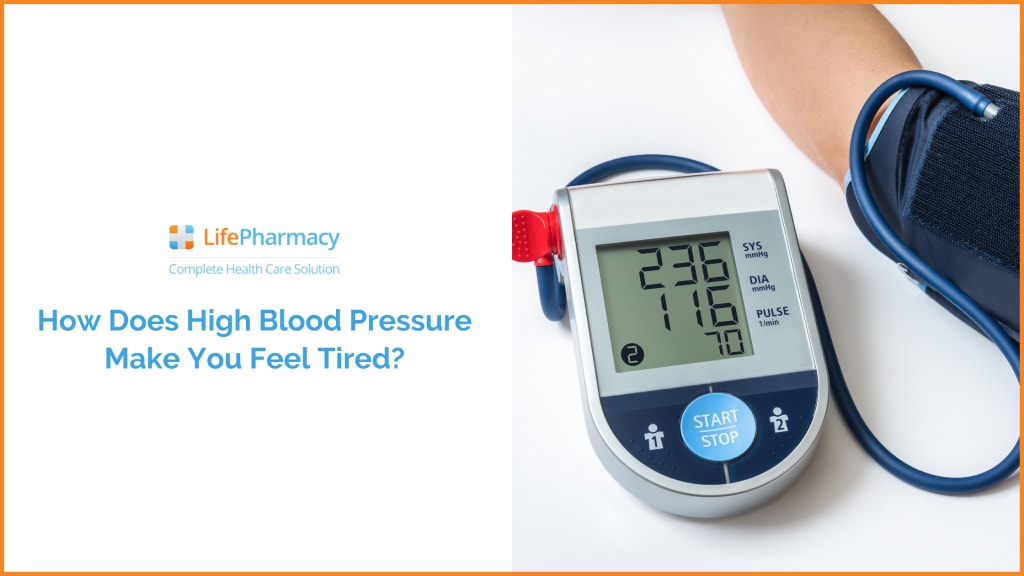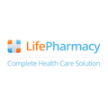How Does High Blood Pressure Make You Feel Tired?
Tiredness can be a sign of heart or kidney damage brought on by high blood pressure. Here is a summary of the effects of blood pressure on the body.

High blood pressure, also called hypertension, affects millions of people worldwide. This condition is caused by consistent blood pressure against the arteries' walls, leading to long-term health issues like fatigue. Monitoring your blood pressure is essential to manage this condition and prevent complications.
It has been demonstrated that excessive daytime sleepiness or weariness, a symptom of high blood pressure occasionally, may serve as a potential warning indicator for cardiac events. With a blood pressure monitor UK residents can monitor their blood pressure readings at home and take the appropriate action to manage their hypertension.
Having trouble sleeping is another way that high blood pressure and fatigue may be related. This article will cover the effects of high blood pressure on fatigue and the necessity of routine blood pressure checks.
What Is High Blood Pressure?
Hypertension, or high blood pressure, can significantly impact your heart's health. A healthy heart requires a consistent and balanced blood flow through the arteries to deliver oxygen and nutrients to the body's organs and tissues.
Blood pressure that consistently rises over healthy levels might lead to a hyperactive heart and compromised arteries. As time passes, the likelihood of experiencing severe heart issues such as coronary artery disease, heart attack, and heart failure rises. Monitoring and maintaining healthy blood pressure levels is essential to promote a healthy heart and prevent the risk of cardiovascular disease.
What Constitutes a High Blood Pressure Level?
When you have your blood pressure measured, two numbers are recorded:
- The systolic pressure (the top number)
- Diastolic pressure (the bottom number)
Systolic pressure measures the force of blood in your arteries during heartbeats, while diastolic pressure measures the force of blood between heartbeats.
According to online chemists in the UK, a healthy or normal blood pressure value is less than 120/80 millimeters of mercury (mm Hg). This indicates that the pressure in your blood vessels is within a normal and healthy range, which is crucial for promoting overall well-being and reducing the chances of heart-related issues.
Readings of blood pressure that are higher than this range fall into the following categories.
- Elevated: The first stage is elevated blood pressure, indicated by a systolic number between 120 and 129 mm Hg and a diastolic number less than 80 mm Hg.
- Stage 1 hypertension: The second stage is stage 1 hypertension, indicated by a systolic number between 130 and 139 mm Hg or a diastolic reading between 80 and 89 mm Hg.
- Stage 2 hypertension: Third stage is stage 2 hypertension, which is indicated by a systolic pressure of 140 mm Hg or a higher diastolic pressure of 90 mm Hg or higher.
- Hypertensive Crisis: A hypertensive crisis is the most severe stage, indicated by a systolic pressure over 180 mm Hg or diastolic pressure over 120 mm Hg. It is essential to seek immediate medical attention if blood pressure falls within the hypertensive crisis range.
Understanding these different blood pressure stages can help individuals monitor blood pressure levels and take necessary steps to prevent complications.
Why Is Your Blood Pressure Important?
Maintaining healthy blood pressure levels is essential for overall health and an important indicator for individuals undergoing diabetes testing. High or low blood pressure levels can indicate significant health concerns, which could lead to severe complications like heart attack, heart failure, stroke, and kidney disease. While natural methods such as a healthy lifestyle and diet can help to lower blood pressure levels, medication may also be necessary for some individuals.
High blood pressure can be gradual and slow, so regular doctor visits for diabetes testing and monitoring are crucial. Individuals can lessen their chance of developing issues associated with hypertension and improve their general health by monitoring their blood pressure levels and adopting healthy lifestyle practices.
Reasons Why High Blood Pressure Can Make You Feel Tired
While research hasn't established a strong link between fatigue and high blood pressure, paying attention to your body's signals and regularly monitoring your blood pressure can provide valuable information to you and your healthcare provider. It's important to remember that if you have high blood pressure, you are at a higher risk of experiencing other health problems that may lead to fatigue.
1. Sleep Apnea
Sleep apnea is a condition that causes breathing interruptions during sleep, resulting in daytime fatigue and other potential health complications. Numerous factors, such as obesity, smoking, drinking alcohol, and high blood pressure, can contribute to sleep apnea.
In some cases, a deficiency in certain vitamins and minerals, such as vitamin D, magnesium, and iron, may contribute to the development of sleep apnea. A to Z multivitamins can help supply the body with a variety of necessary nutrients, including those that may be missing from the diet, and may also help enhance sleep quality and reduce sleep apnea symptoms.
While multivitamins can improve general health, it's vital to remember that they shouldn't be used as a replacement for a balanced diet and way of life, which are essential for avoiding and treating sleep apnea and other medical issues.
2. Stress
Stress is a natural reaction to challenging or overwhelming situations, and when it's used moderately, it may even energize and inspire us. But persistent or extreme stress can harm one's physical and mental well-being. Long-term high-stress levels can raise the risk of several illnesses, such as high blood pressure, heart disease, depression, anxiety, and digestive disorders.
Stress can impair the quality of your sleep, leaving you drained, agitated, and unable to focus. Finding the sources of your stress and creating healthy coping strategies like routine exercise, relaxation techniques, and talking to friends or a therapist are crucial steps in managing stress. By managing stress effectively, individuals can improve their overall health and well-being.
3. Pulmonary Artery Hypertension
A rare but deadly illness known as pulmonary arterial hypertension (PAH) damages the arteries in the lungs and raises blood pressure there. A few symptoms of PAH are shortness of breath, chest pain, fatigue, and dizziness. Even though there is no proven treatment for PAH, several medications can aid in symptom management and delay the progression of the condition.
How and When to Get Medical Help
Because high blood pressure can grow without obvious symptoms or warning signals, it is frequently called the silent killer. It is important to frequently check your blood pressure during routine medical visits, particularly if you have a family history of high blood pressure or other risk factors. Devices measuring your blood pressure at home also help you monitor it over time.
Preventing high blood pressure is within reach if you adopt certain lifestyle strategies. These include:
- Quitting smoking or avoiding it altogether
- Incorporating plenty of healthy, antioxidant-rich fruits, vegetables, and whole grains into your diet
- Reducing your sodium intake
- Managing stress levels
- Maintaining a healthy weight
- Engaging in regular exercise for at least 30 minutes a day
- Limiting your alcohol consumption and avoiding recreational drugs
However, it's crucial to consult your doctor before making any significant food or exercise modifications. They might provide tailored safety advice and help you create a strategy that fits your needs and circumstances. Then, to encourage visitors to the website, create a brief conclusion.
Related Posts: What is A Normal Blood Pressure Reading?
Final Thoughts
High blood pressure is a major health concern that can be easily avoided by making the right lifestyle choices. A healthy diet, frequent exercise, and stress management are crucial to lowering your risk of high blood pressure and enhancing your general well-being. If you risk developing high blood pressure, visit your local UK online pharmacy for advice and treatments to help you maintain healthy blood pressure. You can achieve optimal health and well-being with the right strategies in place.
About the Creator
Life Pharmacy
Life Pharmacy, the leading online pharmacy that provides services such as online NHS and Private prescriptions, weight loss, asthma inhalers, erectile dysfunction tablets and much more. Get in touch with us at our website to learn more.






Comments
There are no comments for this story
Be the first to respond and start the conversation.